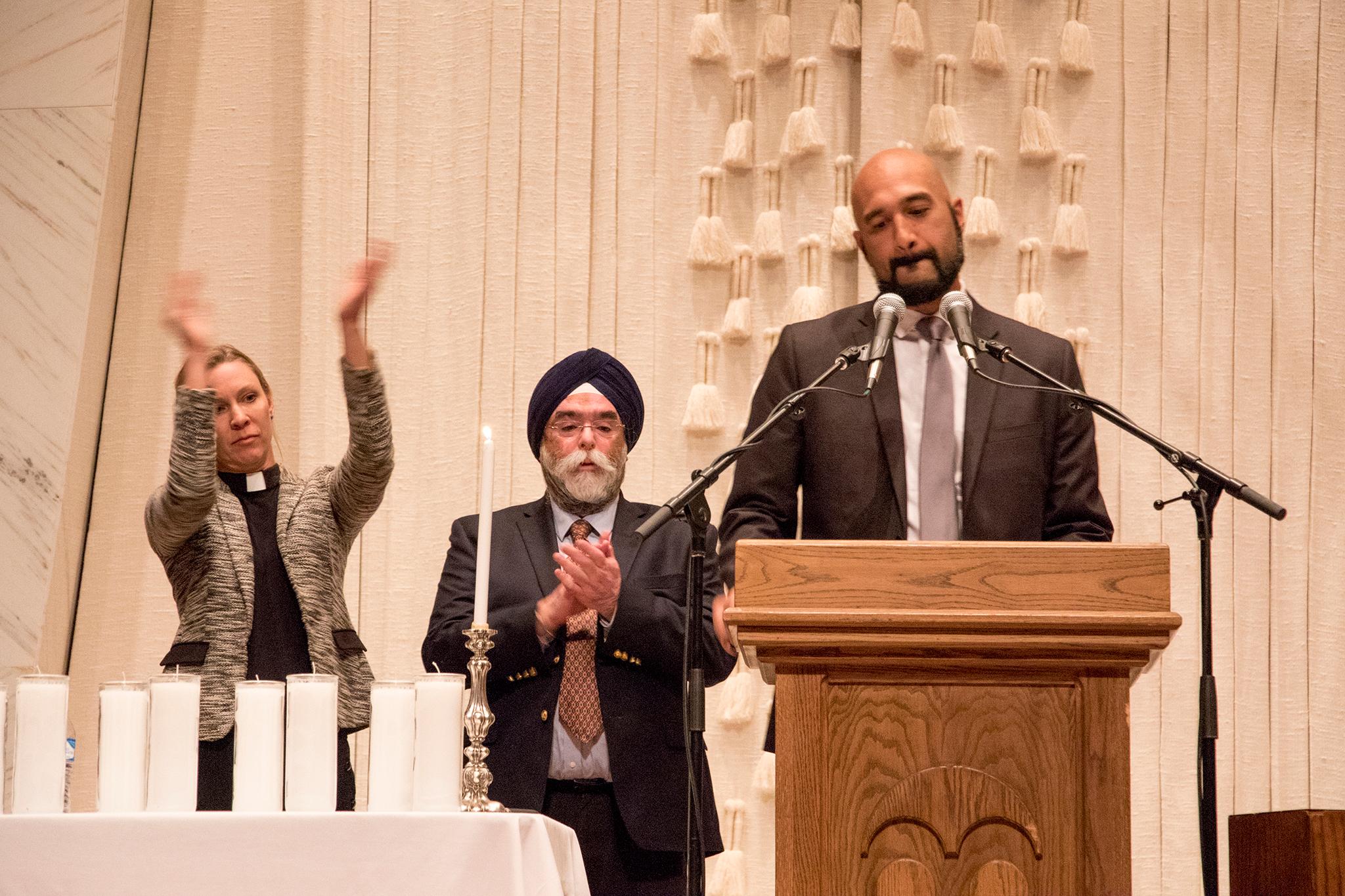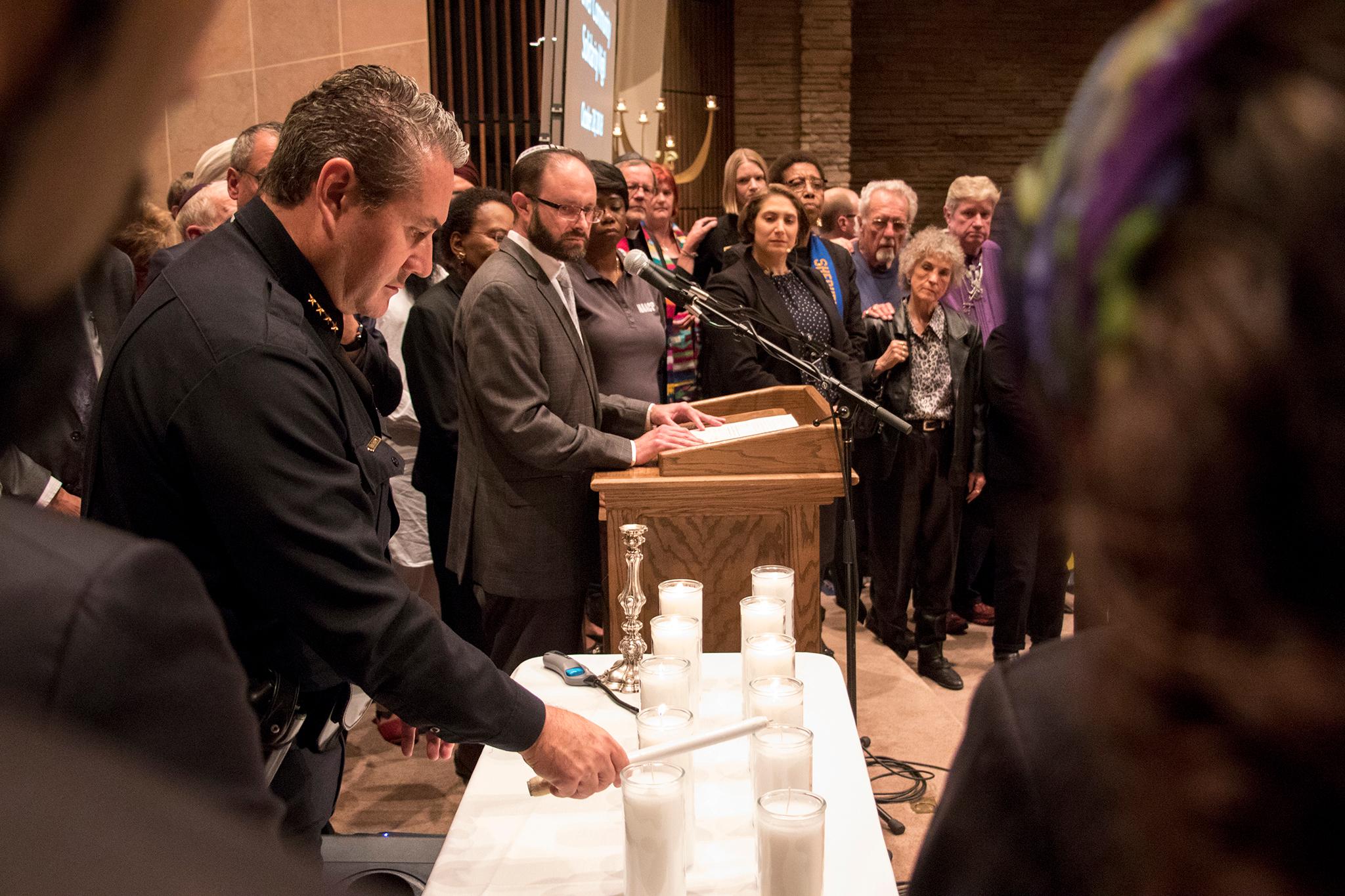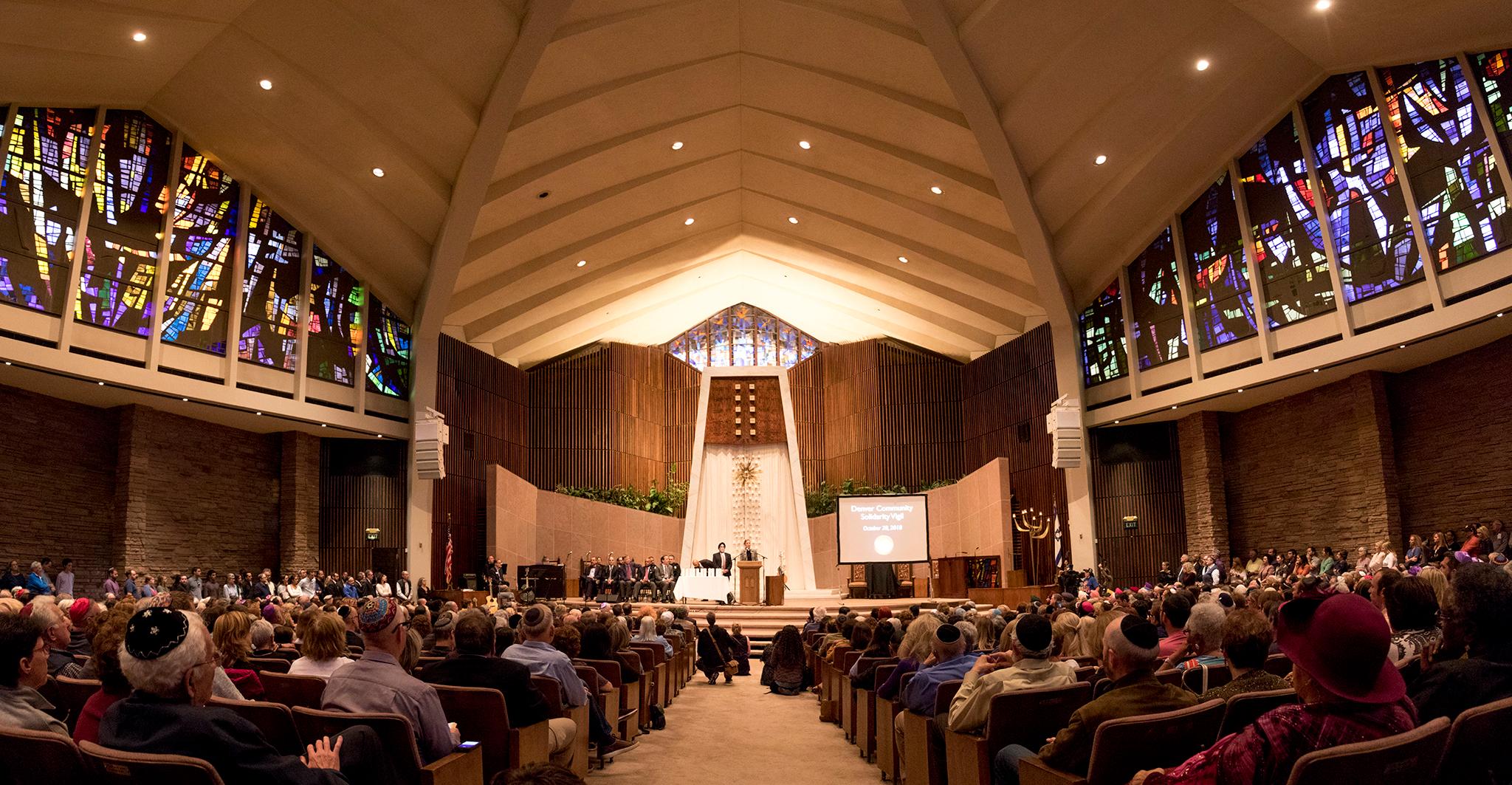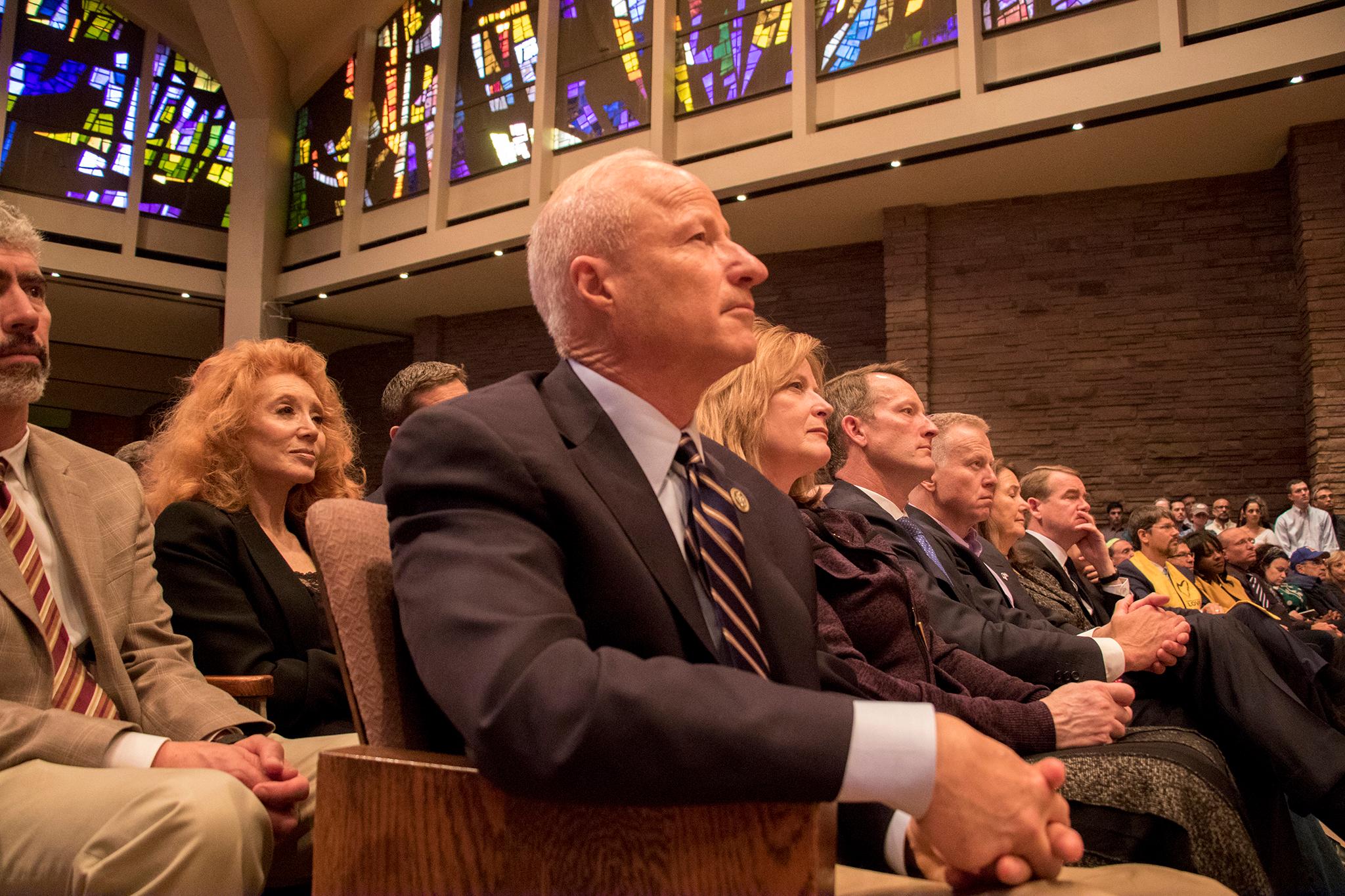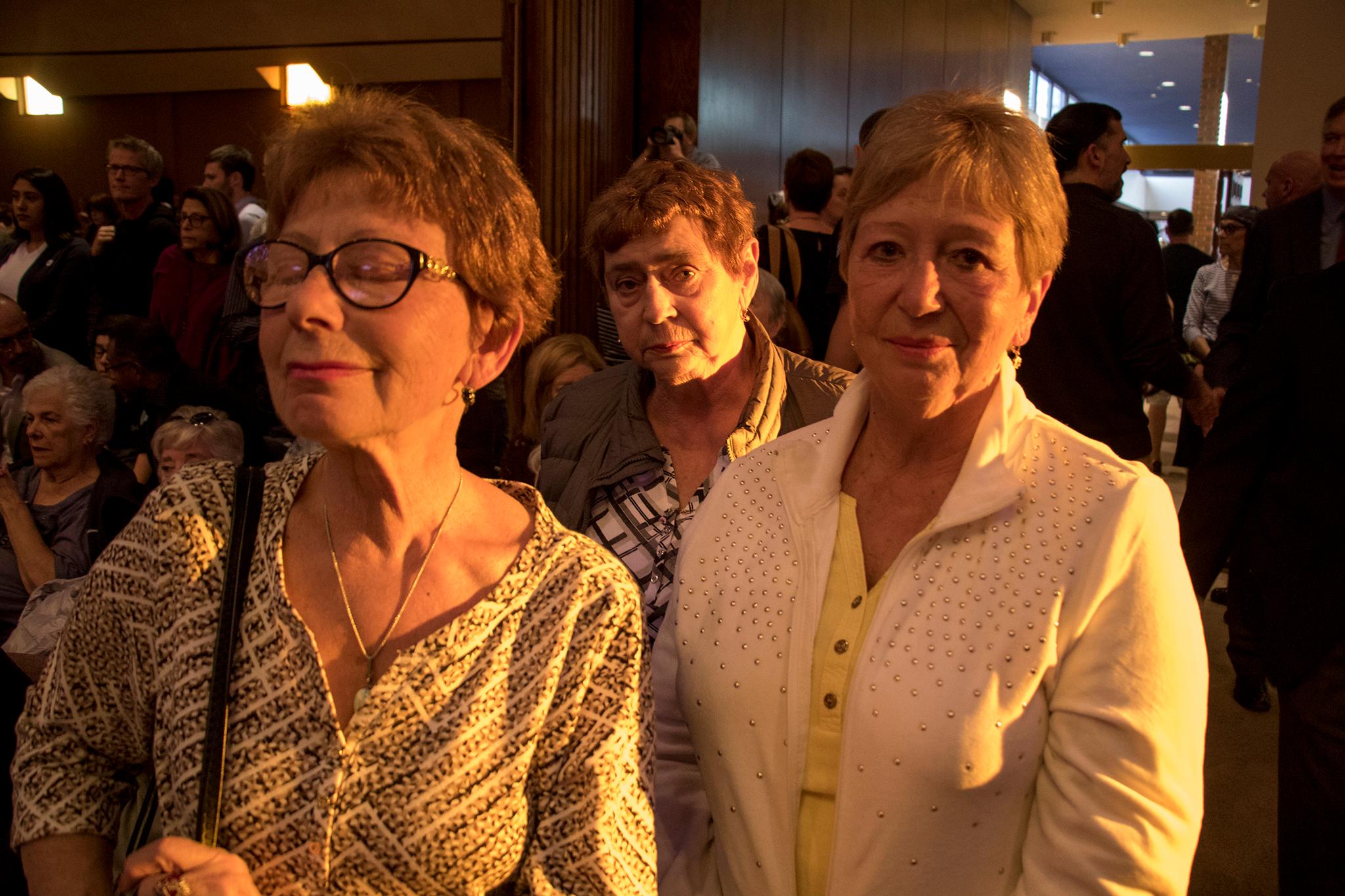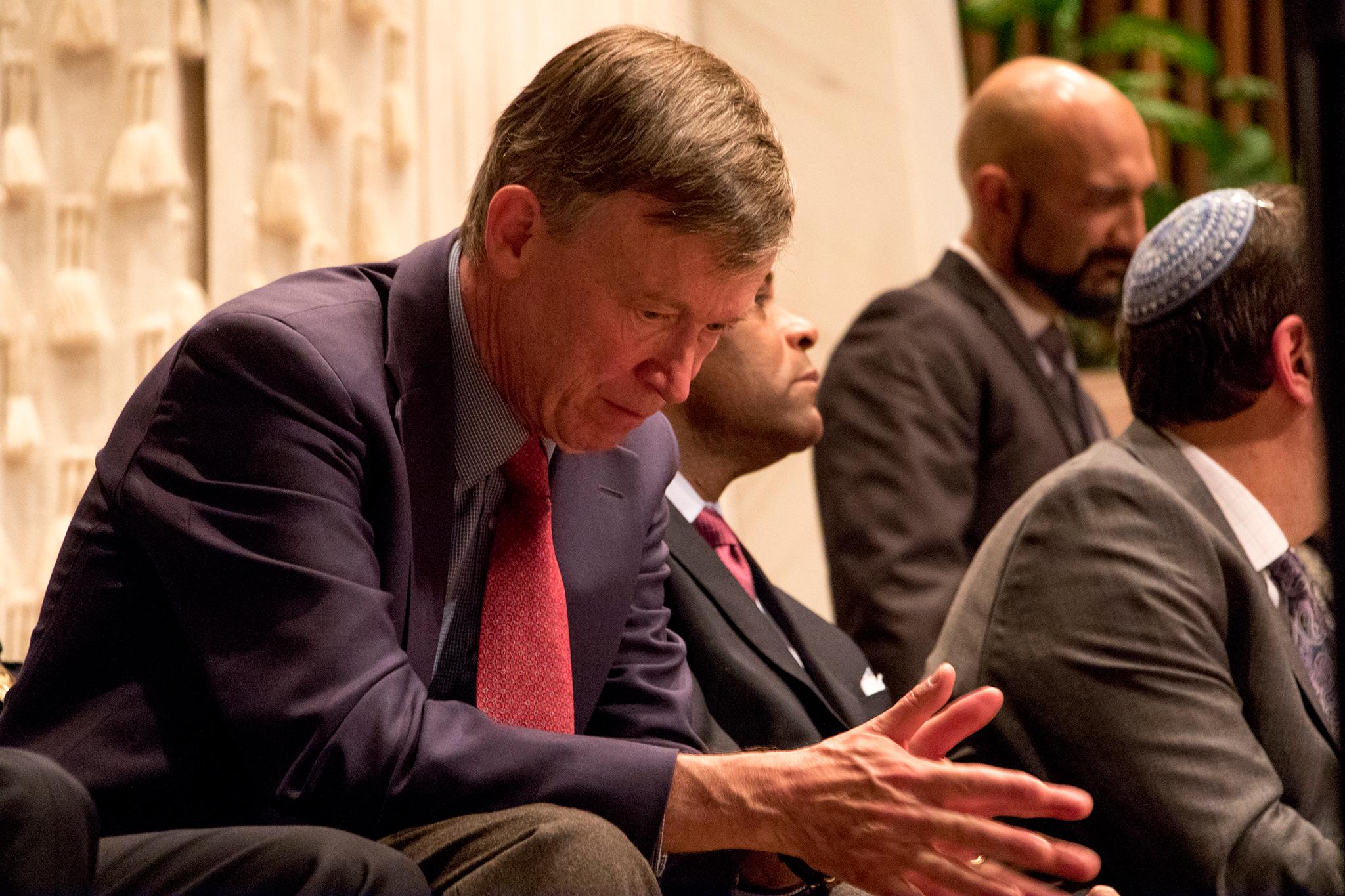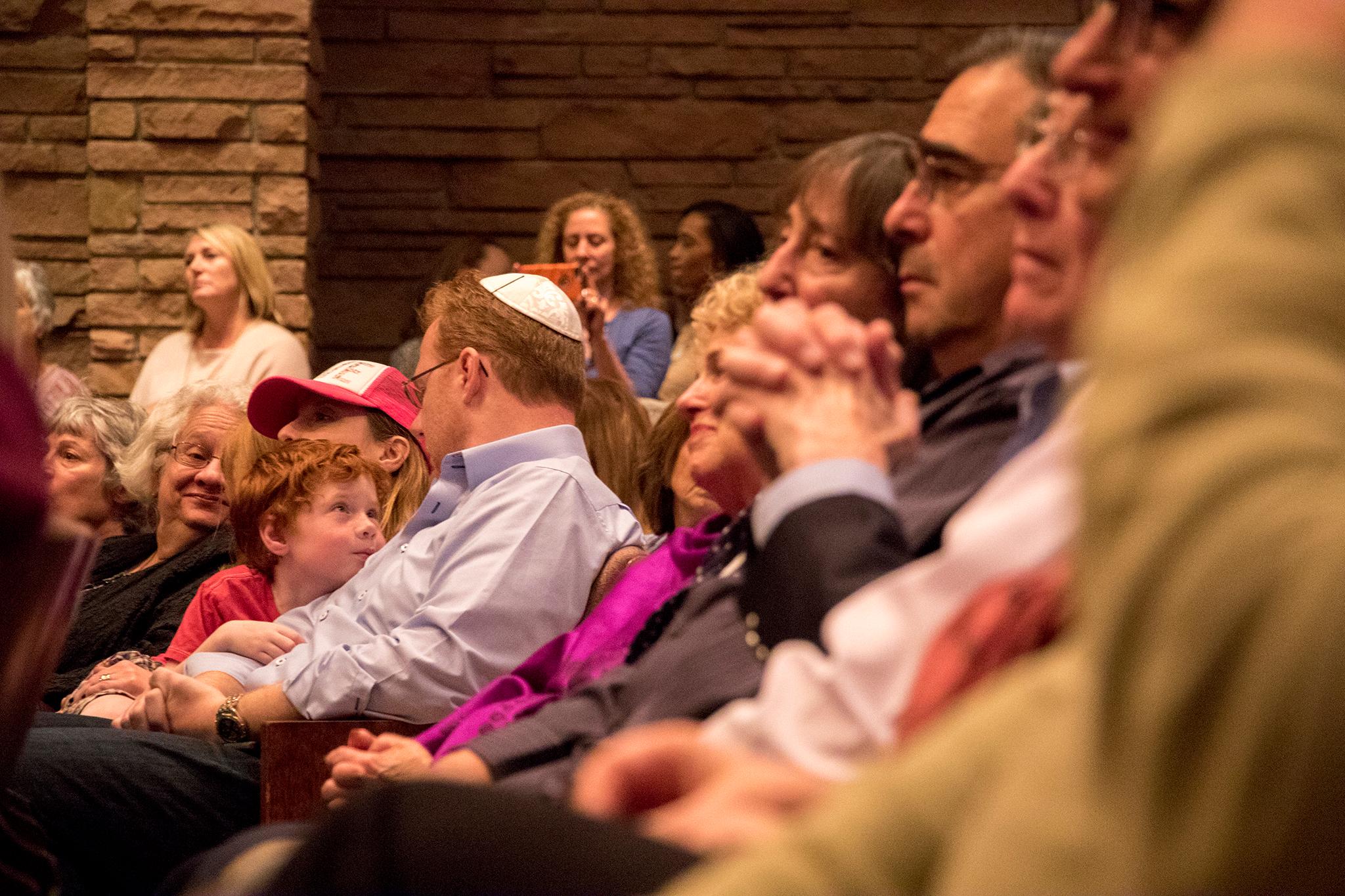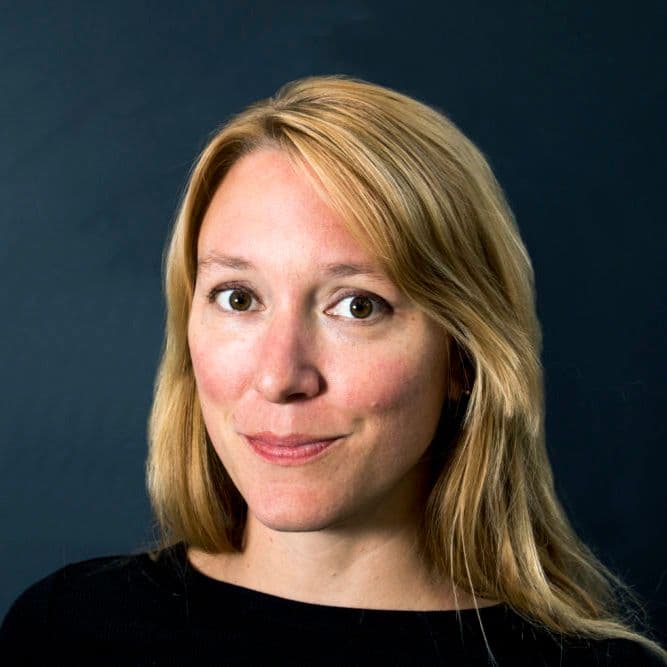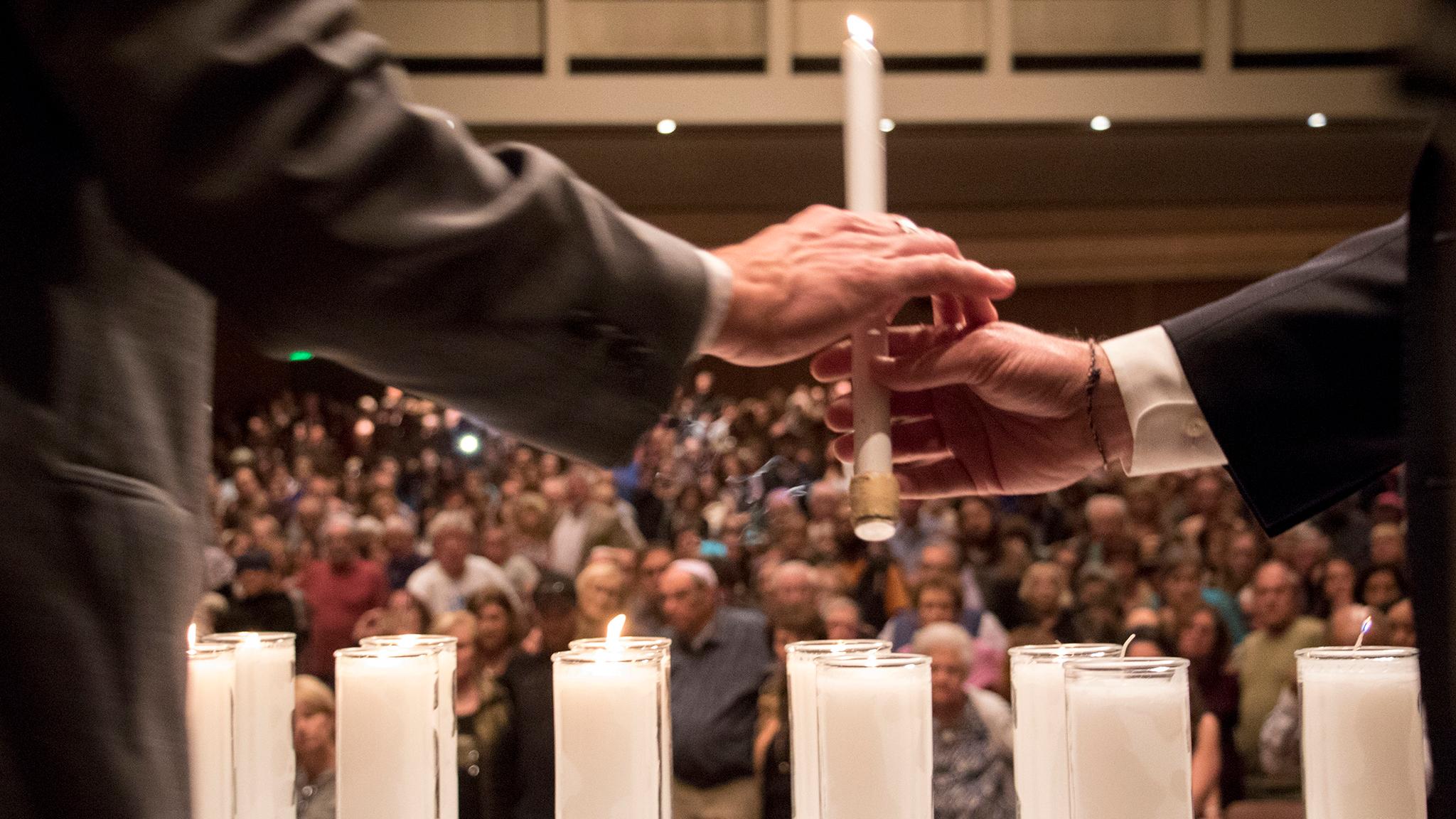This Sunday night at Temple Emanuel was unusual.
For one thing, there were around 2,500 people in the building, which would be quite a lot for a Saturday, let alone a Sunday. The enormous, beautiful assembly hall seats about 1,800.
For another thing, Denver's oldest synagogue was packed with Christians, Muslims, Sikhs, atheists and others with a common cause.
They came to honor the lives of Joyce Fienberg, Richard Gottfried, Rose Mallinger, Jerry Rabinowitz, Cecil Rosenthal, David Rosenthal, Bernice Simon, Sylvan Simon, Daniel Stein, Melvin Wax and Irving Younger — the 11 people killed while praying Saturday morning in an antisemitic attack on the Tree of Life Congregation in the Squirrel Hill neighborhood of Pittsburgh.
They came too in solidarity with the six others who were injured, with the Jewish community of Pittsburgh, with the Jewish community of Denver and with Jews across the country.
Bob Jones, special agent in charge of the Pittsburgh office of the FBI, told our colleagues at The Incline that what law enforcement found in the aftermath of the shooting was "the most horrific crime scene I’ve seen in 22 years with the FBI."
In a statement released Saturday afternoon, Anti-Defamation League Mountain States regional director Scott L. Levin said, “This is likely the deadliest attack on the Jewish community in the history of the United States."
And so Denverites gathered in a synagogue Sunday night, bathed for a while in fading sunlight through stained glass, to support, reflect and rally.
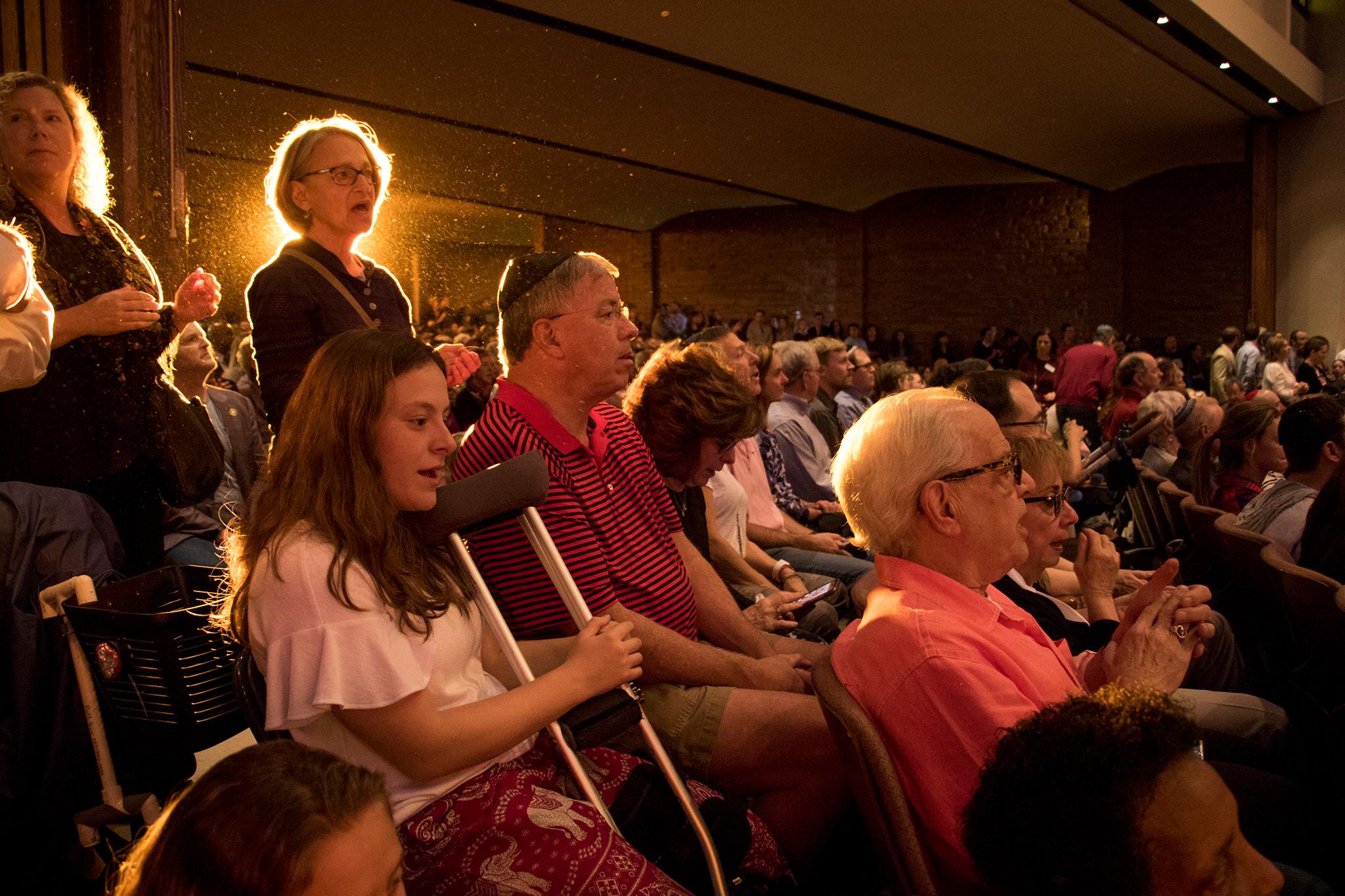
"We are all bound together by our grief, shock and horror," Rabbi Joseph Black told the crowd.
That much was reflected in remarks throughout the night, which came from Levin, Governor John Hickenlooper, Denver Mayor Michael Hancock, Denver Police Chief Paul Pazen, Aurora Police Chief Nick Metz, Interfaith Alliance executive director the Rev. Amanda Henderson, Colorado Sikhs director Dilpreet Jammu, Colorado Muslim Society general counsel Qusair Mohamedbhai, JEWISHcolorado CEO Rabbi Jay Strear and Rocky Mountain Rabbinical Council President Rabbi Solomon Gruenwald.
Between prayers and songs, each speaker offered words of grief, shock and horror as well as sympathy, support and solidarity.
"On behalf of all Colorado Sikhs, let me say that we are truly sorry," Jammu said.
Speaking just after him, Mohamedbhai added, "We've been where you are. ... It's hard to describe, but our hearts are filled and broken at the same time."
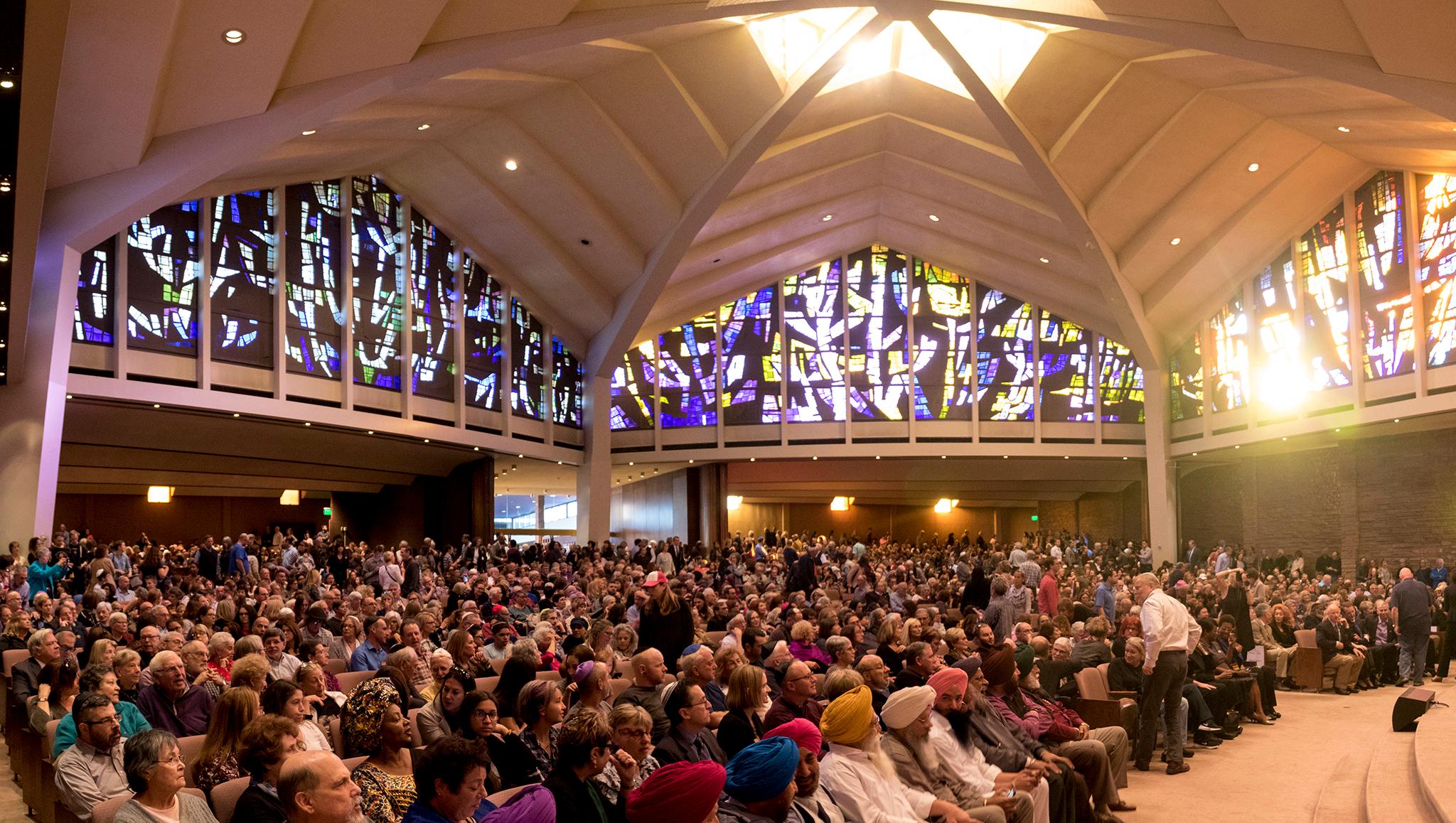
Pittsburgh is nearly 1,500 miles away, but the attack feels close to home.
And, incidentally, similar words have appeared on Denverite before, when the LGBTQ community and allies gathered at Tracks in the summer of 2016 to honor the victims of the mass shooting at Pulse nightclub in Orlando. Feeling connected to these attacks even when they happen in other cities is nothing unusual — people are connected by circumstance, by on-the-ground accounts coming in live on social media, and by just being human. More and more, the connection comes from the inescapable feeling that "it could have been me."
On Saturday, Vox updated its stunning map of mass shootings since Sandy Hook to include the violence in Squirrel Hill. So far this year, 289 people have been killed and 1,208 have been wounded in 297 mass shootings. Since 20 children and six adults were killed at Sandy Hook Elementary School in 2012, there have been 1,883 mass shootings in the U.S., Vox reports, killing 2,098 and wounding 7,929. They've happened at schools, places of worship, offices, a concert, a club — the list goes on and on.
It's been nearly 20 years since the massacre of 13 students by two of their classmates at Columbine High School, but the painful memory lingers. The same goes for the far more recent shooting at an Aurora movie theater in which 12 people were killed. That was five months before the shooting at Sandy Hook. Ten days ago, a judge sentenced the man who calmly shot and killed three people in a Thornton Walmart to life in prison.
Also on the minds of those at Sunday's proceedings, too, was the murder of two black people — Vickie Lee Jones and Maurice E. Stallard — in a Kroger in Kentucky. A few speakers made note of it because it happened just days before the shooting in Squirrel Hill, but more so because the shooter went to the supermarket only because he was unable to get inside a predominantly black church nearby.
Denver and Colorado have seen a sharp uptick in hate crimes and white supremacist propaganda this year. Late last month, the ADL senior associate and regional director Jeremy Shaver told Denverite the organization was aware of around 50 appearances of white supremacist propaganda across the state. That’s up from 22 during all of 2017 and just three in 2016, the Denver Post reported.
"We've had that question answered: Is antisemitism still a thing?" Levin said Sunday night. "... Yes, antisemitism does still exist."
In an evening full of standing ovations, some of the most enthusiastic responses were for calls to action.
When Hancock said, "What I say matters," referencing the power of a leader's rhetoric, he got a standing ovation.
When Jammu said, "Our nation has greater reverence for an amendment in a man-made constitution than it does — ," his words were drowned out in the back of the room by shouts and applause.
Speaking with Denverite earlier in the day, Levin said, "Racism, white supremacy, extremism, hatred, all existed well before Donald Trump, and antisemitism certainly existed long before Donald Trump... I do not draw a direct line to Donald Trump to say that somehow he caused this person to do these horrific acts, but I do think that people, especially on the extremes, are feeling very emboldened by things he said. I don't necessarily think he's antisemitic, but I do see antisemites applaud what he said. I don’t necessarily think he’s a white supremacist, but I see white supremacists applaud what he says."
Later, just before the vigil, Hickenlooper shared a similar sentiment: "I think we need to be a lot more careful about how our leaders motivate their supporters."
"We were at the point of enough is enough years ago, and this is a confluence where it’s a shooting but it’s also a hate act," Hickenlooper told Denverite. "And the notion that perhaps the most powerful and most revered freedom in this country of freedoms is the freedom of religion — if you're going to tell people that they’re free to practice whatever religion they want as long as they’re willing to arm themselves and protect themselves, then we as government are not fulfilling our contract with our community."
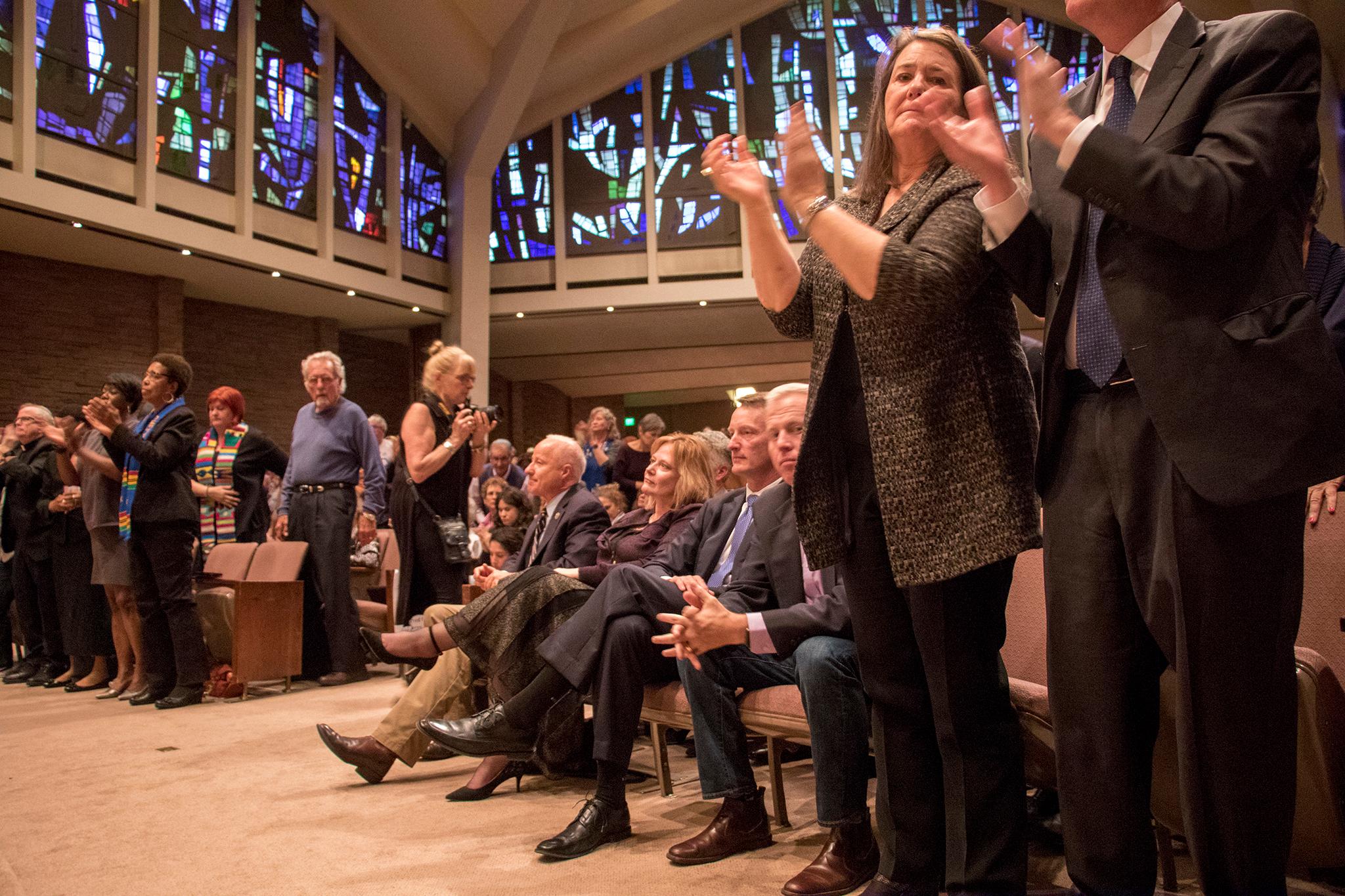
Colorado has universal background checks and limits on magazine size, he said, but he's frustrated that the state couldn't get a "red flag" law passed. House Bill 1436, which would have taken guns out of the hands of people considered a significant risk to themselves or others, failed on a 3-2, party-line vote in a Senate committee.
The way Colorado handles hatred will soon be out of Hickenlooper's hands. In a little more than a week, Coloradans will pick a new governor.
Following the shooting on Saturday, both Walker Stapleton and Jared Polis tweeted messages expressing horror and heartbreak. Polis, who is Jewish, returned a few hours later with, "'Do not envy the violent, nor choose any of their ways' Proverbs 3:31." On Sunday, he retweeted NPR's list of the victims with "השם יקום דמם." Translation: "May Hashem avenge their blood," a saying typically used in response to the killing of innocent Jews.
"What are we supposed to do?"
Henderson said she hears this question all the time. And when she said it aloud on Sunday, no small number of people called back, "vote!"
In faith communities, the answers seem to lie in mutual support and resiliency.
Rabbi Adam Morris of Denver's Temple Micah, who learned about the Tree of Life shooting between his morning service and Torah study, said he wants a balanced response.
"I’d want us to keep continuing to ask the questions we ask about security and safety, but also to keep asking the question we ask about how we stand up for our values and not be shy about that, and to continue to manifest who we think we’re supposed to be," he told Denverite. "Temple Micah lives in a church. We share space with Park Hill Methodist Church, and it’s very much part of our mission — we live it every day — of people living together and working together. So we’re going to lean into that more.
Addressing 2,500 Jews, Muslims, Sikhs, Christians and other community members on Sunday evening, Levin noted that the 80th anniversary of Kristallnacht is little more than a week away.
"The night of broken glass," as it's known, was an attack on the Jewish people of Munich. The beating and murder of Jews and the destruction of their homes and businesses on Nov. 9, 1938, is considered the start of the Holocaust, Levin said, and survivors have recalled that one of the most terrible things was that no one stepped in to stop it.
Several speakers talked about the significance of the enormous show of support for the Jewish community and the diversity of the people offering it — how it's more than a gesture.
"I am pleased to be here and to look out and see neighbors, clergy, police officers and government who said this will not stand," Levin said to a standing ovation.
"Do not become numb. Do not become apathetic with this trend of violence," Hancock said.
"Many of us in Colorado know the pain of gun violence all too well..." Hickenlooper said. "But we can never accept this kind of violence."
Over the course of his remarks, he repeated this phrase three times: "This is not OK."
